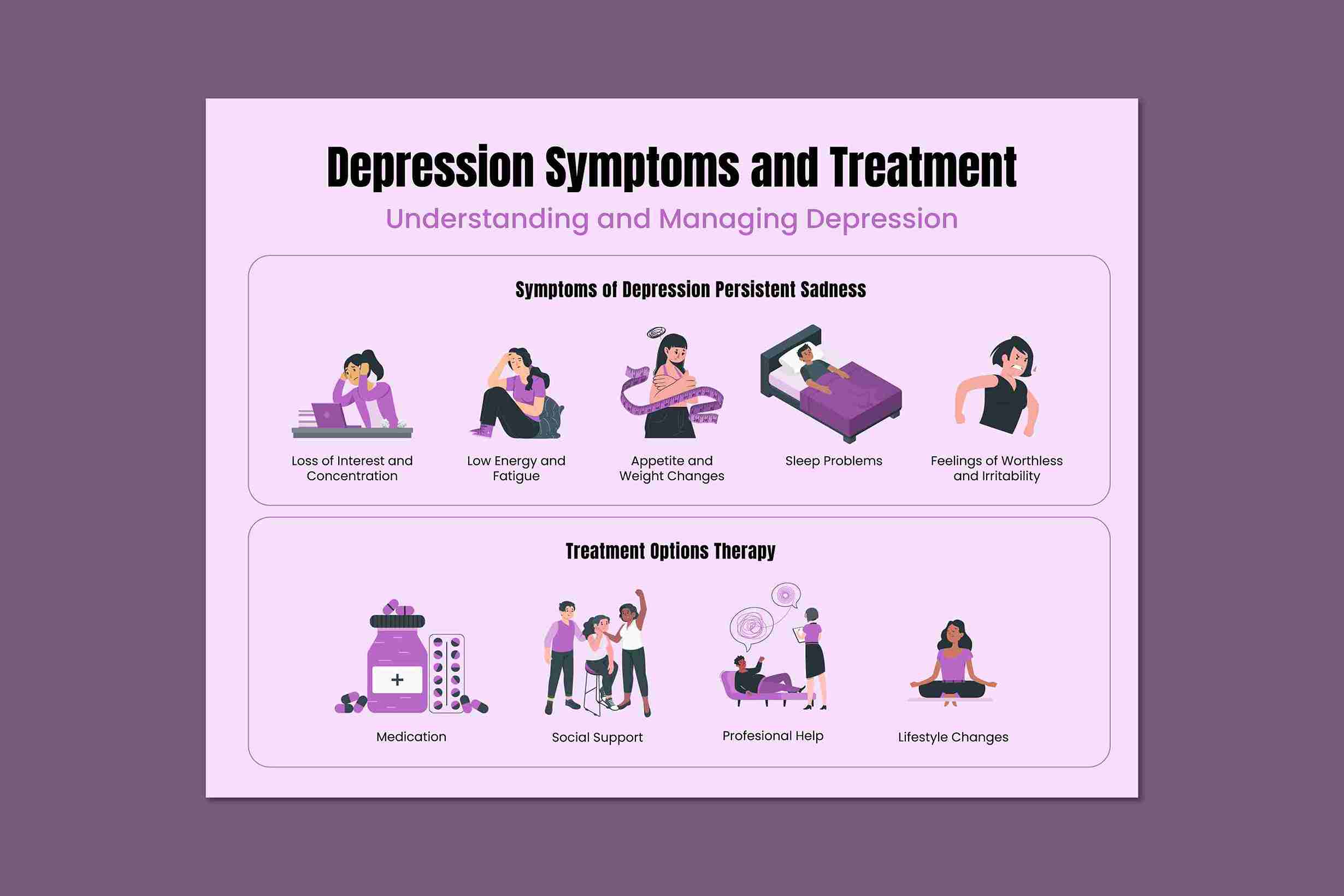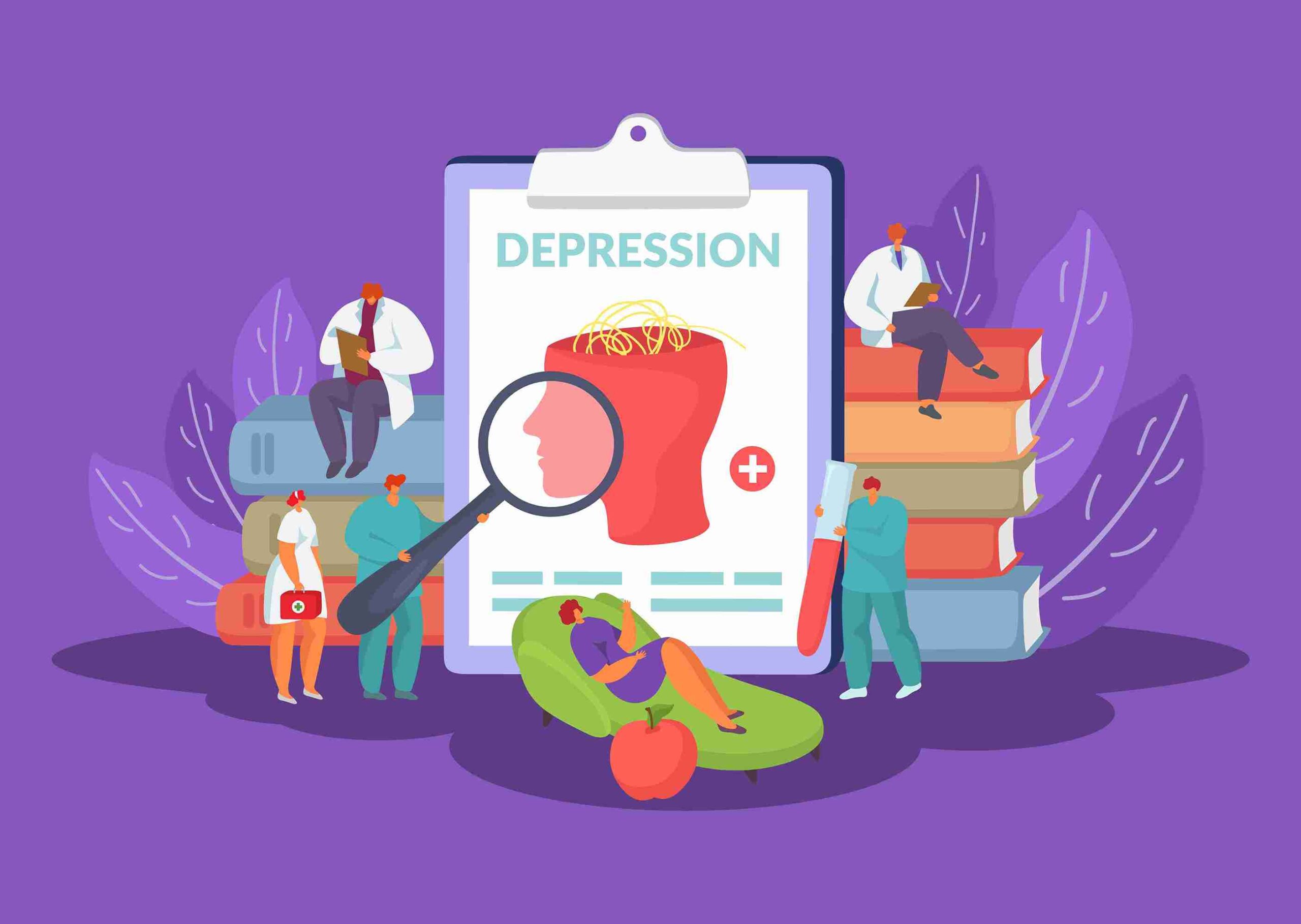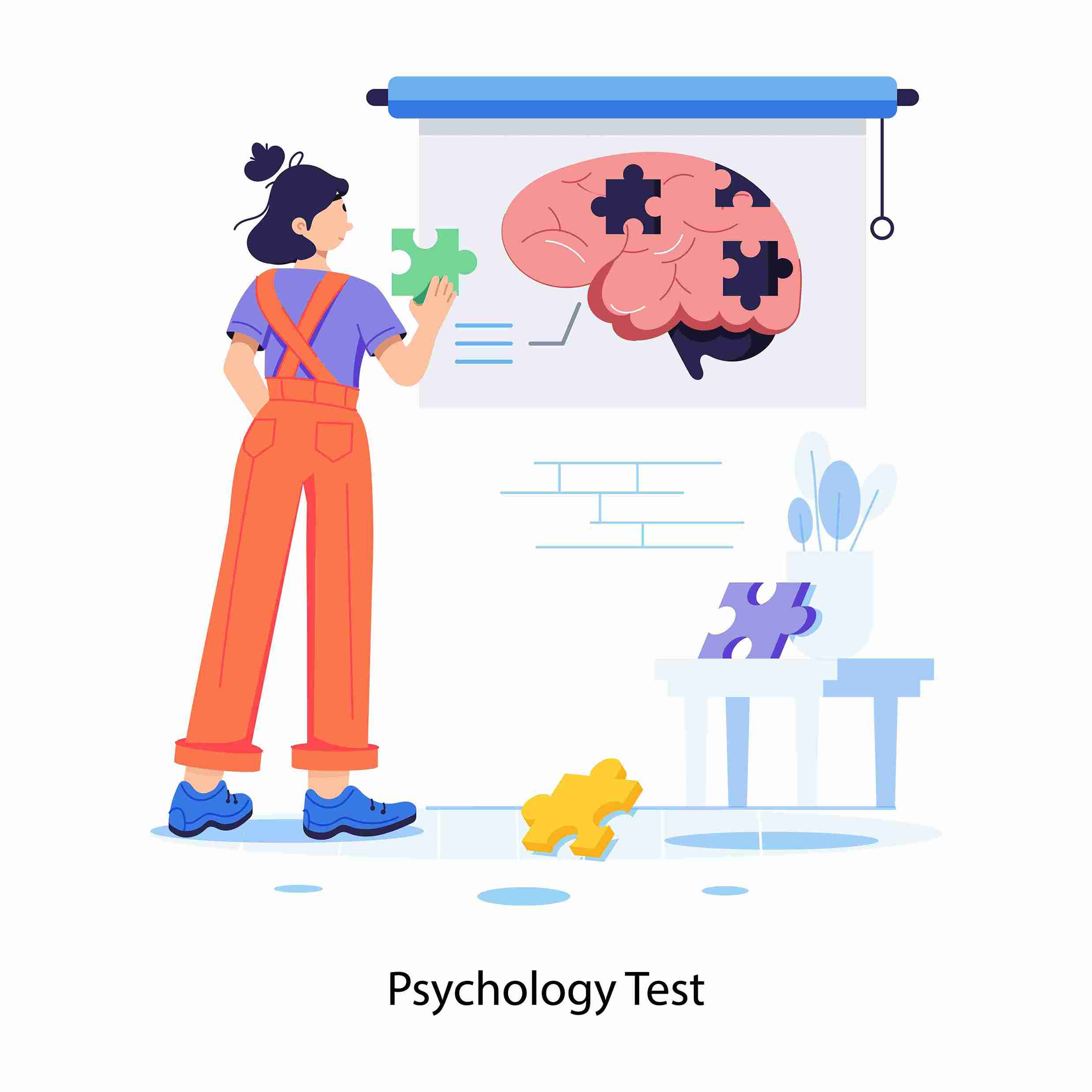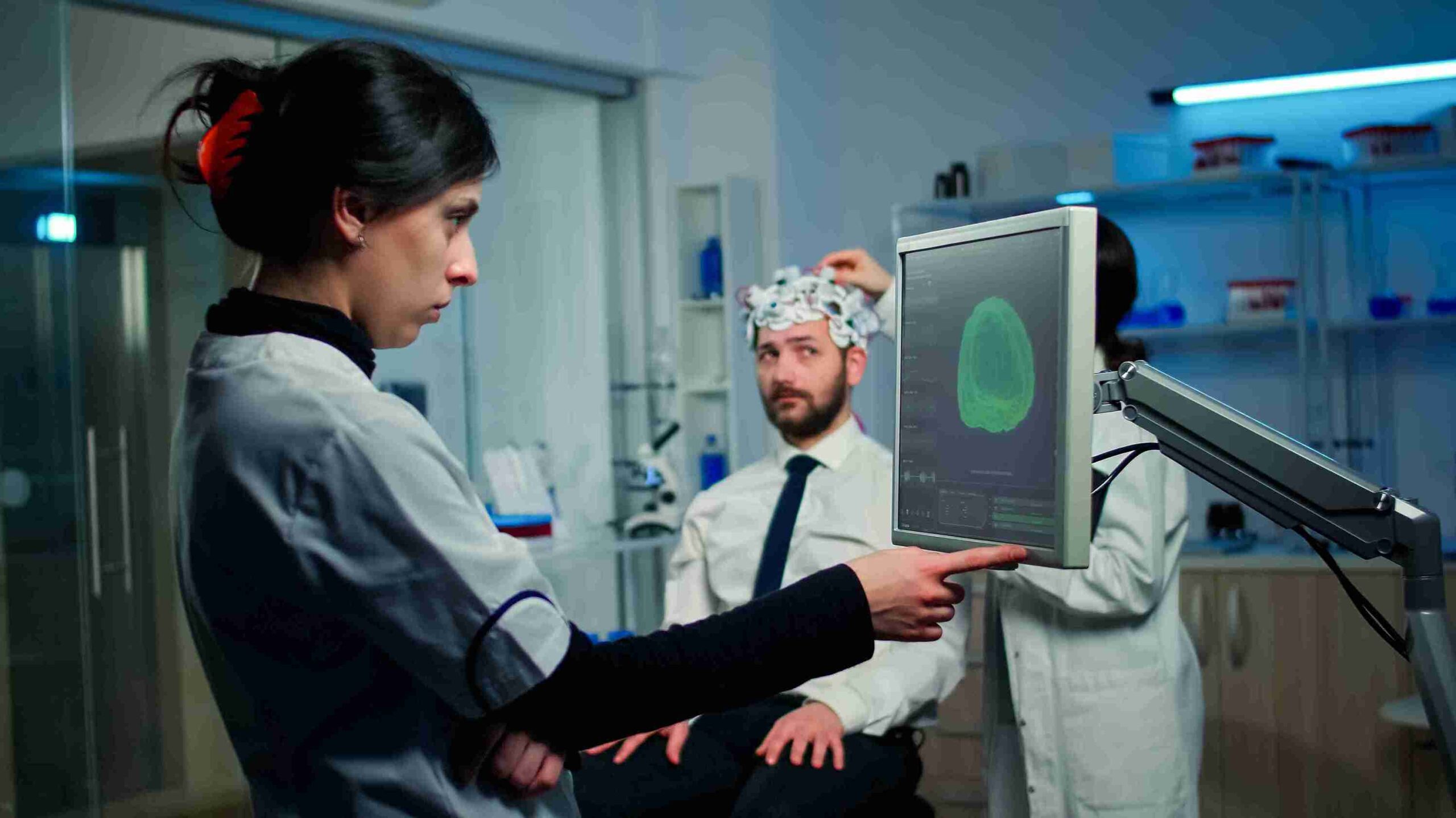What is Depression?
Depression is a serious mental health condition that affects millions of people worldwide. It can cause significant distress, impair daily functioning, and even lead to suicidal thoughts. To get help and receive the right therapy, it is essential to recognize the telltale signs and symptoms of depression.A depression test is a simple process designed to detect early signs of depression. A mental health professional, such as a psychologist or psychiatrist, frequently administers these tests, which can be completed online or in person. In this article, we will discuss the depression test, its importance, and how to identify depression.
Key Facts About Depression
People who face significant stress, trauma, abuse, or loss are more likely to develop depression. Women are more prone to depression, with 6% of adult women affected compared to 4% of men.

Global Impact:
- Depression affects about 3.8% of the global population.
- Nearly 280 million individuals worldwide experience depression.
- Among those aged 60 and older, 5.7% live with depression.
Mental Health During Motherhood:
Over 10%of pregnant women and new mothers experience depression globally.
Suicide Statistics:
- Suicide claims the lives of about 700,000 individuals every year.
- Suicide is the fourth leading cause of death in people aged 15–29 years.
Treatment Barriers:
- Over 75% of individuals in low- and middle-income countries do not get the mental health care they need.
- Challenges include insufficient funding, a lack of trained professionals, and the stigma surrounding mental health conditions.
Why is a Depression Test Important?
The Depression Test is a simple process that involves answering structured questions about mood, sleep patterns, energy levels, and daily activities. Healthcare providers often use these screenings, but they can also be found in self-assessment tools online. Depression test guide provides an easy introduction, emphasizing the importance of awareness and early action for mental health support.
1.Recognizing Early Symptoms
One of the essential tools for identifying early symptoms of depression is a depression test. Early identification helps in addressing the issue before it becomes more severe, leading to better long-term mental health outcomes.
2.Preventing Severe Health Impacts
When left untreated, depression can lead to significant physical, emotional, and social consequences. A depression test helps to identify the condition before it causes irreversible damage, such as impacting physical health or increasing the risk of self-harm.
3.Encouraging Self-Reflection
People can evaluate their mental health by taking a depression test. It helps them understand how their mental health might affect their daily activities, relationships, and overall quality of life.
4.Fighting the Stigma of Mental Health
Regular depression screenings help normalize mental health discussions. It lessens stigma and encourages people to seek help without worrying about being judged by others by raising awareness and understanding.

5.Supporting the Planning of Treatment
The outcomes of a depression test give medical professionals critical information about a patient’s mental state. Whether using medication, therapy, or other interventions, this knowledge helps choose the best treatment approaches.
6.Encouraging Action for Better Mental Health
A depression test can motivate individuals to take proactive steps toward managing their mental health. By recognizing the need for professional help, people are more likely to seek therapy, engage in self-care, and find strategies to cope with their feelings.
Common Depression Test (Assessments)
1.Patient Health Questionnaire-9 (PHQ-9)
The PHQ-9 is a well-known tool consisting of 9 questions that assess how often a person experiences symptoms of depression over two weeks. The answers help healthcare professionals determine if depression is present and its severity, providing a clear picture of the individual’s mental health status.
2.Beck Depression Inventory (BDI)
The BDI is a self-report tool made up of 21 questions designed to evaluate the intensity of depressive symptoms. It is frequently used by mental health practitioners to monitor treatment progress and to understand the severity of a person’s depression.
3.Hamilton Depression Rating Scale (HDRS)
The HDRS, also known as the Ham-D, is an assessment a clinician administers to evaluate the severity of symptoms of depression. To assess the person’s mental state, it asks several questions concerning mood, sleep issues, and physical symptoms, among other aspects of depression.

4.Center for Epidemiologic Studies Depression Scale (CES-D)
The 20-question CES-D scale gauges depressed symptoms during the previous seven days. Often used in research, it helps identify individuals who may be experiencing depression and prompts further assessment by healthcare providers.
5.The GDS, or Geriatric Depression Scale
A 15- or 30-question test called the GDS is used to measure depression in senior citizens. It considers that depression in older people may present differently, with an emphasis on the mental and emotional changes that occur in later life.
6.Zung Self-Rating Depression Scale
The Zung Scale is another self-report measure with 20 items that aim to assess the level of depression. This depression test is used to evaluate an individual’s symptoms and can help determine whether further professional evaluation is needed to address depression.
7.Edinburgh Postnatal Depression Scale (EPDS)
Designed specifically for new mothers, the EPDS contains ten questions about emotional health and postpartum mood. It screens for depression after childbirth, helping healthcare providers detect early signs of postnatal depression.These depression tests are intended to assist medical professionals in diagnosing depression and its intensity, directing treatment, and offering valuable information about an individual’s mental health.Getting a professional evaluation if you suspect depression will guarantee that you receive the assistance and care you need.
Hope and Healing: What to Expect After a Depression Test
1.A Better Understanding of Your Mental State
Taking a depression test provides a clearer picture of your emotional and mental health. It helps identify the severity of your symptoms, giving you and your healthcare provider a clearer idea of the next steps in your treatment.
2.Guided Treatment Options
Once the depression test results are in, they serve as a roadmap for treatment. Based on the outcome, you can explore various treatment options, such as therapy, medications, or lifestyle changes that can be customized to suit your needs.

3.Increased Self-Awareness
A depression test helps bring awareness to the thoughts, feelings, and behaviours that may be contributing to your struggles. Being self-aware allows you to adapt and deal with underlying problems more skillfully.
4.Ongoing Assistance and Modification
Your healthcare provider will continue to help you after the test. Regular check-ins ensure that your treatment plan remains effective, allowing for adjustments as necessary to improve your mental well-being.
5.A Sense of Relief and Validation
Taking a depression test often brings a sense of relief, as it confirms that your feelings are not just in your head but are valid. Understanding that available help can reduce feelings of isolation and provide hope for improvement.
6.A Fresh Start Toward Recovery
The depression test represents the beginning of your journey toward healing. While recovery may take time, knowing that you’re taking proactive steps toward better mental health can inspire hope and motivate you to continue your treatment plan. An essential first step in comprehending and treating mental health is taking a depression test. It brings clarity, offers treatment guidance, and initiates healing, providing hope for a brighter and healthier future.
What to Do If You Think You Might Be Depressed
1.Recognize Your Emotions
Notice if sadness, hopelessness, or fatigue disrupts your life. Accept that seeking help is a positive and vital step forward.

2.Speak with a Trusted Individual
Talk to a close friend or relative about your feelings and concerns. Opening up might offer support and make you feel less alone.
3.Get Expert Assistance
Speak with a medical professional or mental health expert. They can assess your symptoms and direct you toward efficient therapies.
4.Take a Depression Screening
Self-assessments, like the PHQ-9, can help you understand your emotional state.
5.Focus on Self-Care
Incorporate exercise, balanced meals, and adequate rest into your routine. Mindfulness or relaxation techniques can also help ease stress.
6.Stay Connected
Avoid withdrawing from loved ones. Engage in social interactions to foster a sense of connection and support.
7.Be Patient with Yourself
Understand that recovery is a process. Treat yourself with compassion and take small steps toward feeling better each day.
Depression Testing: Separating Fact from Fiction
Myth 1: Depression Tests Provide Instant Diagnoses
A common misconception is that depression tests instantly confirm a diagnosis. In reality, these tests are tools to identify symptoms and provide guidance for seeking professional evaluation. A formal diagnosis requires a detailed assessment by a qualified mental health provider.
Myth 2: Depression Tests Are Only for Severe Cases
Many people believe depression tests are only for individuals with severe symptoms. In truth, they can benefit anyone experiencing changes in mood or behaviour, helping detect early signs of depression before symptoms worsen.
Myth 3: Online Depression Tests Are Unreliable
While not all online tests are accurate, many reputable ones, like the PHQ-9, offer valid insights. However, these tools should be seen as a first step, not a substitute for professional advice.

Fact 1: Tests Help Highlight Patterns
Depression test identify recurring symptoms and their impact on daily life. This insight can motivate individuals to seek further help.
Fact 2: Tests Are Backed by Science
Well-established tests like the BDI and HAM-D are grounded in extensive research. They provide reliable frameworks for understanding mental health challenges.
Fact 3: Testing Encourages Improved Care
Accurate screening can help healthcare professionals customize treatment plans. Whether through therapy, medication, or lifestyle changes, these interventions often begin with the insights gained from a test.
The Bottom Line:
A depression test is a valuable tool for identifying symptoms of depression and guiding treatment decisions. If you think you might be depressed, don’t hesitate to seek professional help and take a depression test. Remember, depression is a treatable condition, and seeking help is the first step towards recovery.
